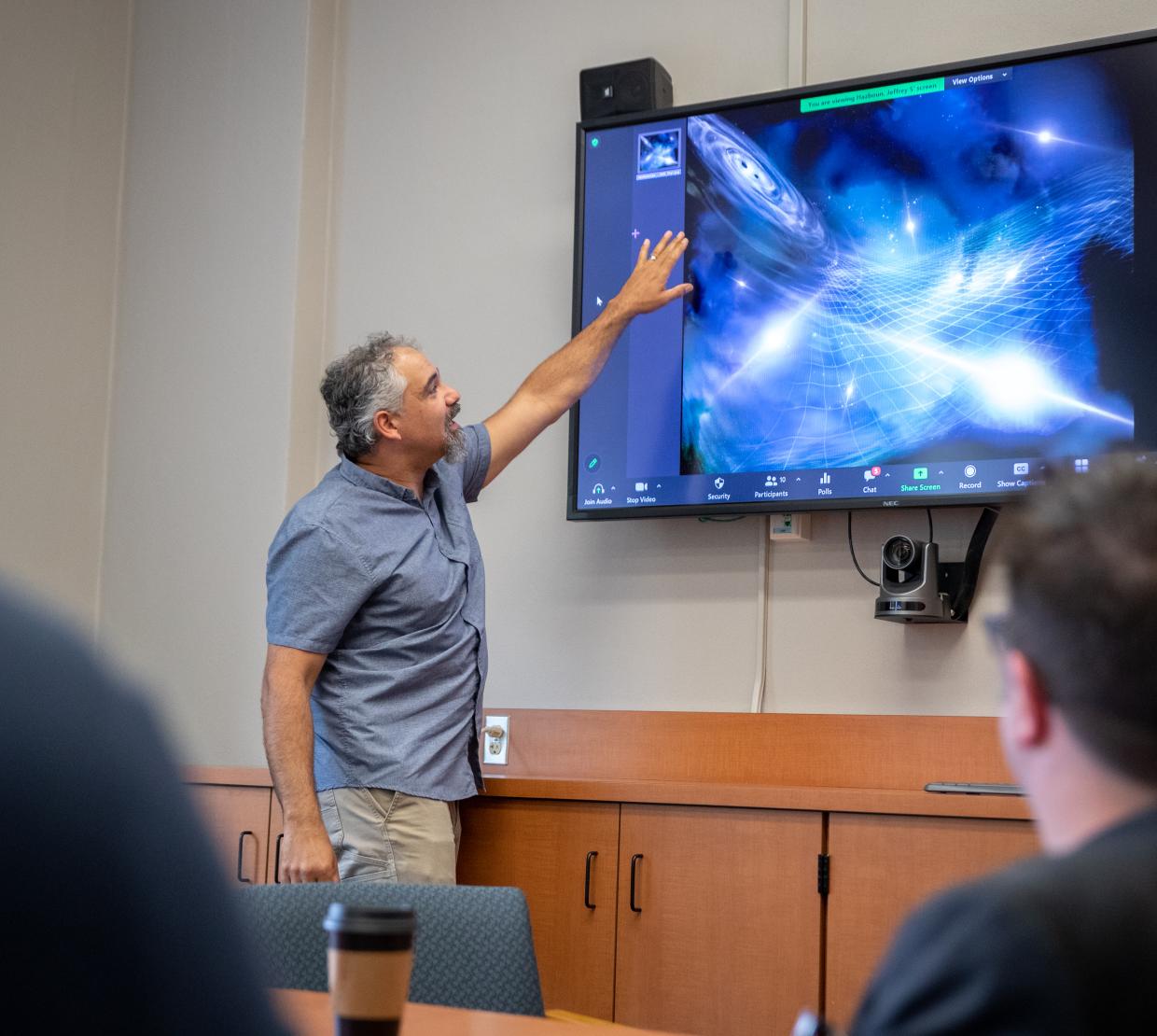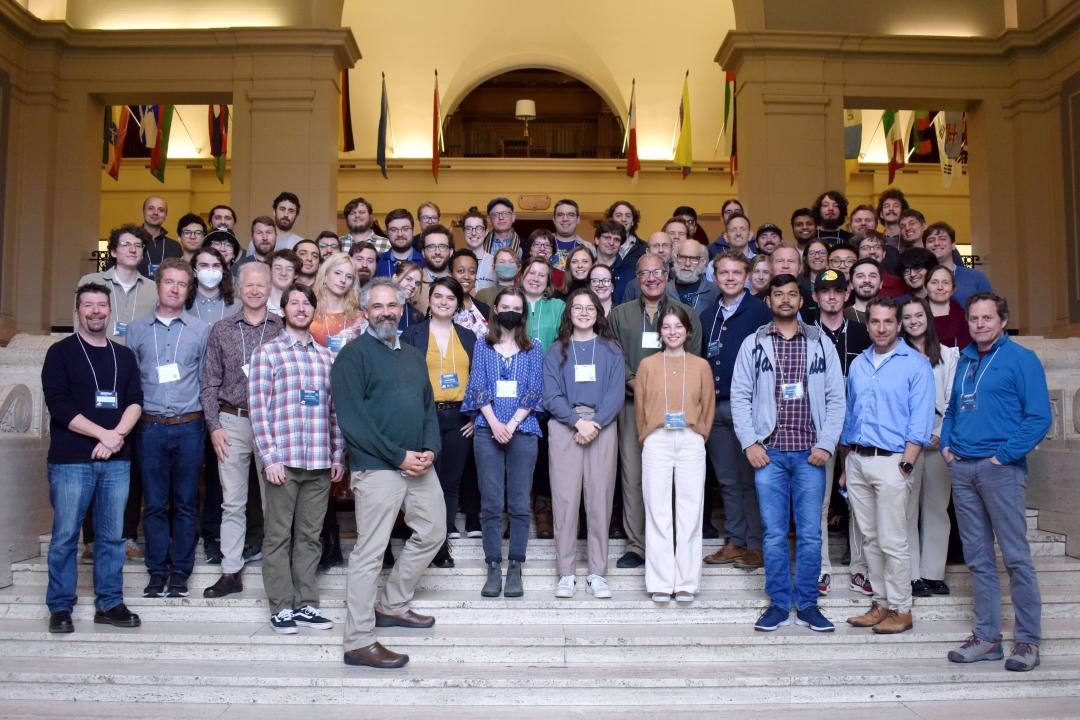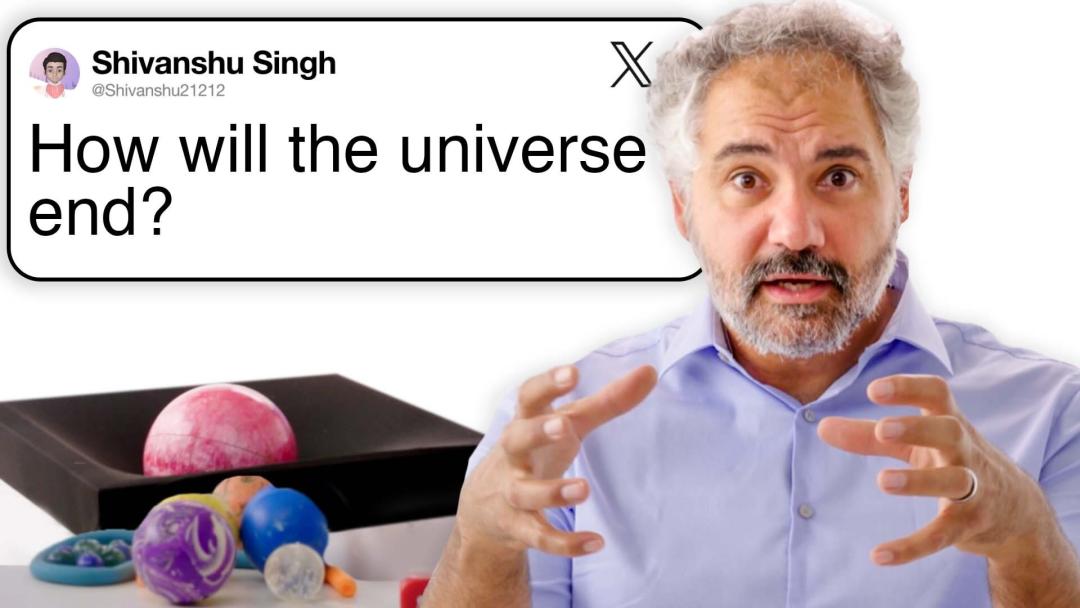Physicist Jeff Hazboun had a remarkable year in 2023. He was a member of a multi-university team whose research went viral, and he received a coveted NSF Faculty Early Career Development award.
Hazboun’s project includes curriculum development and the implementation of a summer workshop in astrophysics-themed data analysis designed to foster inspired teaching, stimulate excitement in PTA research, facilitate the learning goals of undergraduate and graduate students, and support the community college students’ transition into four-year schools.
A proud Oregon State alum and now an assistant professor in the Department of Physics, his research with the North American Nanohertz Observatory for Gravitational Waves received international attention in June 2023.
NANOGrav announced their groundbreaking discovery that ripples in the fabric of time-space, predicted by Albert Einstein more than a century ago, are permeating the universe at low frequencies. Detecting a “chorus” of low-frequency gravitational waves is a key to unlocking the mysteries of how structures are formed in the cosmos.
The news was picked up around the world, including by: The New York Times, The Guardian, Al Jazeera, The Indian Express, Washington Post, NPR and AP News, among countless others.
“Becoming part of NANOGrav and the relationships I’ve built has probably been the most meaningful piece of my career. Finding something that’s interesting, but also finding something that takes a lot of people to work on,” Hazboun said. “I work better in a team than solo, and I think for a long time we’ve been trying to abolish the idea of the lone genius myth in science. Cutting-edge science these days takes big teams of people and being part of a team is motivating for me.”







